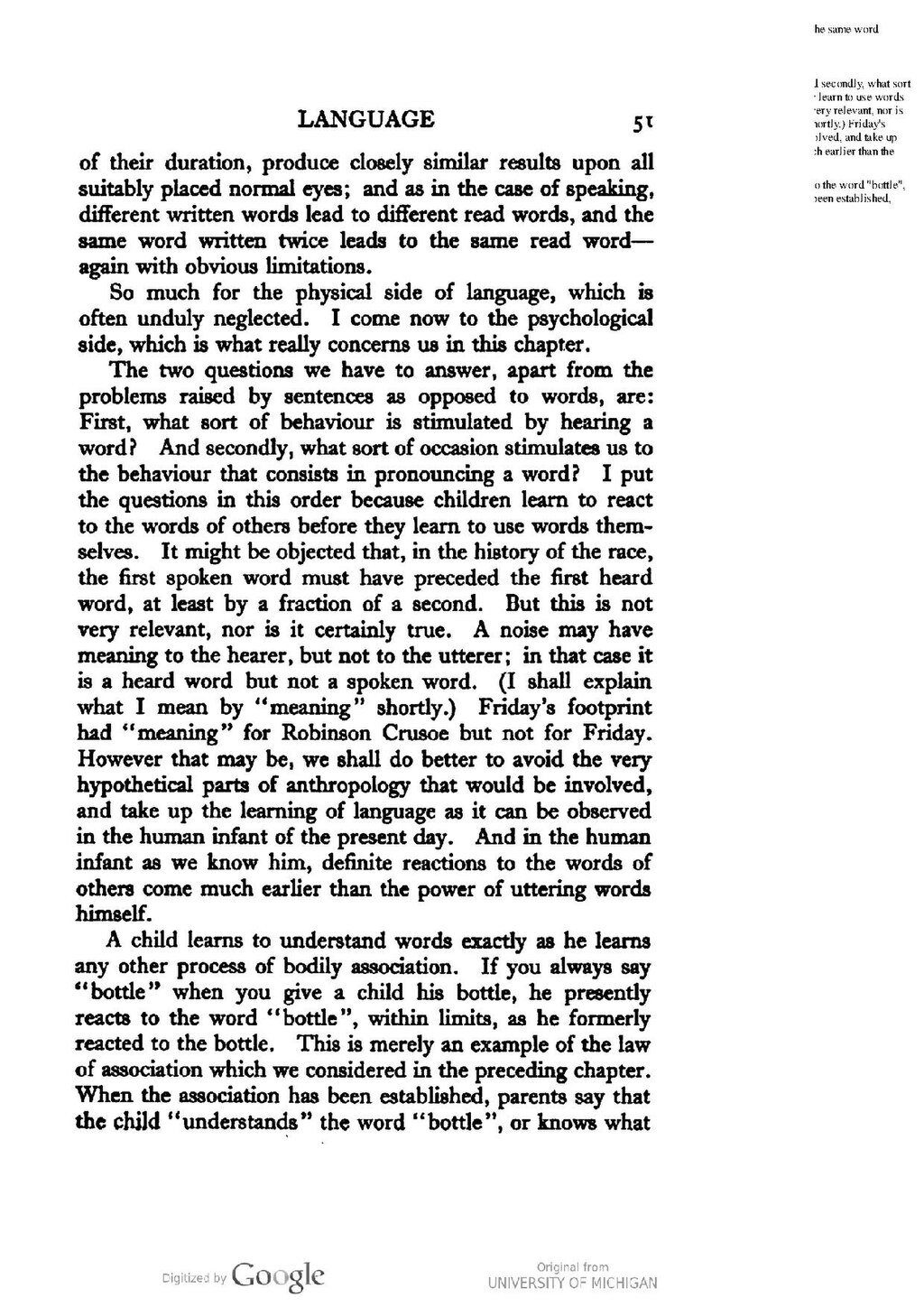of their duration, produce closely similar results upon all suitably placed normal eyes; and as in the case of speaking, different written words lead to different read words, and the same word written twice leads to the same read word—again with obvious limitations.
So much for the physical side of language, which is often unduly neglected. I come now to the psychological side, which is what really concerns us in this chapter.
The two questions we have to answer, apart from the problems raised by sentences as opposed to words, are: First, what sort of behaviour is stimulated by hearing a word? And secondly, what sort of occasion stimulates us to the behaviour that consists in pronouncing a word? I put the questions in this order because children learn to react to the words of others before they learn to use words them- selves. It might be objected that, in the history of the race, the first spoken word must have preceded the first heard word, at least by a fraction of a second. But this is not very relevant, nor is it certainly true. A noise may have meaning to the hearer, but not to the utterer; in that case it is a heard word but not a spoken word. (I shall explain what I mean by "meaning" shortly.) Friday's footprint had "meaning" for Robinson Crusoe but not for Friday. However that may be, we shall do better to avoid the very hypothetical parts of anthropology that would be involved, and take up the learning of language as it can be observed in the human infant of the present day. And in the human infant as we know him, definite reactions to the words of others come much earlier than the power of uttering words himself.
A child learns to understand words exactly as he learns any other process of bodily association. If you always say "bottle" when you give a child his bottle, he presently reacts to the word "bottle", within limits, as he formerly reacted to the bottle. This is merely an example of the law of association which we considered in the preceding chapter. When the association has been established, parents say that the child "understands" the word "bottle", or knows what
